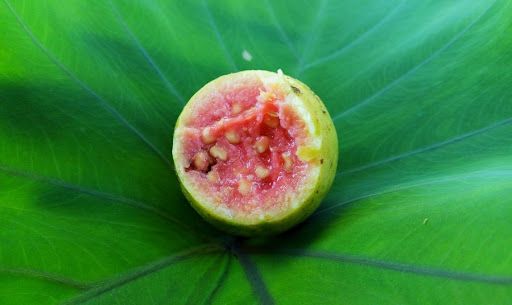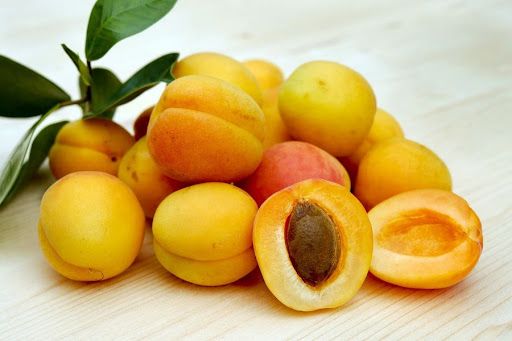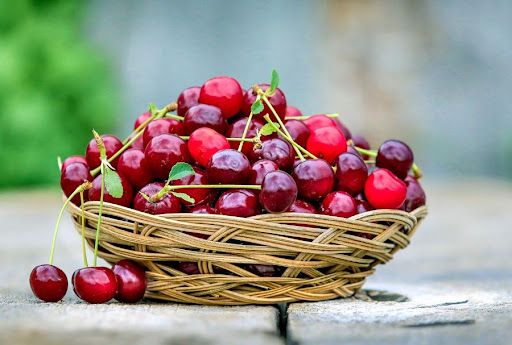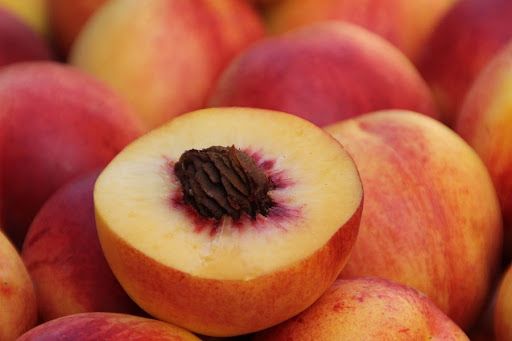Your body needs protein to build muscles and cells as well as to stay healthy. Meat, eggs and dairy are, of course, a well-known source of protein but not for people who on plant-based diets or want to limit their consumption of animal products.
If you’ve decided to go vegan, getting enough proteins in your diet can seem challenging. This doesn’t have to be the case, however. You can rely on plant-based proteins, contained in a plethora of foods, such as nuts, seeds, pulses, grains and vegetables. But what about fruits? Did you know that there are plenty of fruits rich in protein that you can include in your diet and add to your protein intake?
So, read on and find out which 15 fruits have the most protein!
Key Takeaways
- Protein plays an important role in repairing your cells, building muscles, and maintaining a healthy immune system.
- While not the ultimate high-protein food, some fruits like avocados, pomegranates, apricots and berries contain sufficient amounts of protein to help you supplement your diet.
- There are numerous ways to enjoy fruit, from eating them plain or adding them to your cereal to blending them into amazing smoothies or using them as spreads on toast.
What Is Proteinaceous Food?

Proteinaceous food is basically food that is rich in proteins. Protein consists of amino acids that act as the building material for the repair of cells, body tissues, and muscles. It’s also essential for healthy bones, teeth, and nails, as well as an important element for the normal functioning of your immune system. Not getting sufficient amounts of protein can be one of the causes behind brittle bones, muscle weakness, and compromised immunity. All of this makes protein-rich food a necessary part of our diet.
Protein is generally associated with foods, such as meat, seafood, eggs and dairy. But these options won’t work for you if you’re on a vegan diet, since it avoids all animal products, of course. Well, there are plenty of proteinaceous foods, which are plant-based.
Do Fruits Contain Proteins?
Often left out of lists of proteinaceous foods, fruits, such as avocado, guava, and pomegranates, actually contain significant amounts of protein. It’s undeniable that there’s more protein in meat and legumes, and it’s difficult to receive all the protein you need from fruit alone. Most likely, you will need to eat several protein-rich foods a day to make sure your diet is balanced. But fruit has the advantage of being a healthy and effortless snack.
Related: Which Girl Scout Cookies Are Vegan? A Detailed Review
Enjoy tasty and healthy meals, packed with all the nutrients needed when on a vegan diet. Order Cookunity’s fast and convenient vegan meal delivery service anytime and take advantage of a range of carefully crafted recipes from top chefs near you!
15 Delicious Fruits High in Protein to Add to Your Diet
Some varieties of fruit are richer in protein than others. Below, we’ve gathered the most protein-rich fruits to help you add healthy plant-based proteins to your diet. So, if you’re wondering what fruit can help provide you with the protein you need, here is a list of 15 high-protein fruits:
1. Guava – 2.6g per 100g

Guava is one of the most protein-rich fruits. It also contains a high quantity of vitamin C and fibers. You can simply bite into it (like an apple), and the best part is that all of it is edible – even the seeds. This is not all you can do with it, however. Guavas can be added into refreshing drinks and smoothies, salads, and even cooked into jams or jellies.
2. Passion Fruit (Granadilla) – 2.2g per 100g

This round, orange tropical fruit (not to be confused with regular passion fruit) has a high protein content. While slightly difficult to eat, as its pulp is intermixed with crispy seeds, passion fruit is a popular addition to juices and smoothies.
3. Avocado – 2g per 100g

Familiar to most people as the main ingredient in guacamole, avocados are popular fruit that contain lots of protein. In addition to this, avocados are a great source of healthy fats and potassium. They’re ideal to to use in salads, spreads, and some people even eat them plain, sprinkled with a bit of lemon juice, salt, and pepper.
4. Jackfruit – 1.7g per 100g

Often used as a vegan meat substitute, jackfruit is one of the highest protein fruits. It’s a large, spiky fruit that is often sold canned or cut. The canned variety contains young jackfruits that are usually used as a meat substitute in various cooked dishes. Jackfruit works great for adding to stir fries or curries, because it absorbs the spicy taste of the other ingredients very well. Note, however, that canned jackfruit with syrup will contain less protein per 100 grams – only 0.4 compared to the 1.7g in the fresh fruit.
5. Pomegranates – 1.7g per 100g

Highly popular in Middle Eastern cuisine, pomegranates come packed with vitamins, antioxidants, and elements essential for your health. Its ruby-like seeds are a wonderful and creative addition to salads and even stews or vegetable ragouts. Just separate them from the membrane and sprinkle as much as you need over your plate. Not only will your meal look lovely, the sweet-sour taste is very pleasant, too.
6. Apricots – 1.4g per 100g

Delicious apricots are another example of fruits rich in protein. Tasty on their own, you can always slice them and put them on toasts or add them to salads. Also, dried apricots contain an even higher amount of protein than the fresh fruit. They can make a very pleasant snack along with some nuts. Also, don't forget that the kernels of apricots contain B17, a vitamin that has proven antioxidant properties.
7. Blackberries – 1.4g per 100g

With their slightly sour flavor, blackberries are often included in various berry mixes. Adding them to your cereal or mixing them into smoothies with other berries are all great ways of getting those extra proteins.
8. Raspberries – 1.2g per 100g

Raspberry is another berry variety with a high amount of protein. Summery and sweet, they are the perfect addition to breakfast. They also make an entirely effortless snack – much healthier than chips.
9. Nectarines – 1.1g per 100g

Nectarines are like smooth-skinned peaches. They have a sweet taste, and are usually a little smaller than peaches and richer in protein. Add them to fruit salads or eat them plain.
10. Kiwi Fruit – 1.1g per 100g

The sour-sweet kiwi fruit contains protein, as well as vitamin C. It’s a great addition to smoothies and other refreshing drinks, and it can also be cut and eaten plain. If you like sour fruits, slice the kiwi when it’s still hard on the outside. The longer you let it sit, the sweeter it'll become.
11. Cherries – 1.1g per 100g

Cherries are a familiar favorite that many people associate with summer. They make a wonderful snack and can be added to smoothies if you buy them frozen and pitted. Dried cherries are also available, but some of them are sold sweetened, so watch out if you don’t want to increase your sugar intake.
12. Oranges – 0.9g per 100g

Although best known for their high vitamin C content, oranges are also relatively protein-rich. A glass of orange juice or oranges cut and added to your fruit salad can be a great supplementary source of plant-based protein.
13. Peaches – 0.9g per 100g

Peaches are sweet and tasty summer fruit. Just like their close relative, the nectarine, they contain protein. Peaches are wonderful on toast with some cream cheese, and you can add them to salads if you want to.
14. Cantaloupe Melons – 0.9g per 100g

This large type of melon has a distinctive sweet and juicy taste. You can always cut it into smaller pieces and add it to other fruit for a delicious fruit salad. Alternatively, you can have it in smoothies or in a homemade icecream, too.
15. Grapes – 0.9g per 100g
Both white and red grapes contain relatively high amounts of protein, and they can be a mouth-watering snack. In addition to eating them plain, you can always add seedless variants to salads or cereals. Last but not least, grapes go perfectly well with crackers and various cheeses.
Related: How to Get Protein as a Vegan? Meet Your Protein Needs
Enjoy Tasty Snacks With Fruits

Image by Sugar and Charm
There are so many ways to enjoy fruit! You can add them to salads, make toasts with fruit for the perfect breakfast, or mix some of your favorite fruit into a refreshing smoothie.
Good fruit snacks are not hard to make. Simply choose several fruits you like, make sure that their tastes differ somewhat (a nice mix of sour and sweet flavors), and cut them into small slices. You can combine them with nuts and seeds, and even with suitable vegetables to create an original and filling meal. If you eat dairy products, you can also add some mozzarella or other favorite cheeses.
Some fruits, like avocado, make very tasty toast spreads. Furthermore, you can blend several different fruits together to make a smoothie or milkshake. Just make sure the fruit you choose for milkshakes aren’t sour, as it might curdle the milk. Apart from the classic banana and strawberry milkshakes, you could use ripe peaches and cantaloupes for the same purpose, as they are sweet high-protein fruits.
And why not create an artistic fresh cut fruit platter using all of the protein-rich fruits in the list above? You can then taste them and decide on the fruit you like best if you’re still uncertain which are your favorites.
For more fruit recipes, you can always rely on Cookunity's delicious and fruity meal options, be it a summery Peach Yogurt Parfait, a savory and protein-rich favorite - Jack Fruit Tacos or a simple but healthy Fresh Fruits Bowl!
Related: 15 High Protein Meal Prep Ideas to Achieve Your Nutritional Goals
High Protein Fruits to Include in Your Diet: FAQs
Q: How much protein should I eat per day?
A: The minimum amount of protein you need each day is 0.8 grams per each kilogram of your weight, or 0.36 per pound. It’s easy to calculate how much protein you need – simply multiply your body weight by 0.8 (for kilograms) or by 0.36 (for pounds). You can also use a protein intake calculator.
Q: How much fruit should you eat per day?
A: Most nutritionists agree that an adult person needs 4-5 servings of fruit per day. So, it's a good idea to include some fruit with each meal you eat.
Q: Which fruit has the least carbs?
A: Olives and avocados contain the least carbohydrates. There are several other low-carb fruit types if you're on the keto diet, such as blackberries and raspberries.
Q: Which vegetable is high in protein?
A: Many vegetables contain high levels of protein. Examples of high-protein vegetables are lentils, spinach, beans, alfalfa sprouts, asparagus, broccoli, cauliflower, and Brussels sprouts. Some of these, like alfalfa sprouts, have the added benefit of being low in calories.
Related: What Does a Vegetarian Eat for Breakfast? 10 Healthy Ideas
Looking for an easy way to save time and eat well while following the high protein diet? CookUnity’s prepared meal delivery service could be just right for you. There are hundreds of delicious chef-crafted dishes to choose from every week, accommodating a wide range of dietary preferences and needs. All meals are prepared fresh, delivered straight to your door, and ready to eat within minutes. Explore how CookUnity can transform the way you eat.
Conclusion
No matter whether you’ve decided to go vegan or you simply want healthier, non-meat protein sources in your diet, you’ve got a lot of options. As our list shows, there are many proteinaceous fruits that are both delicious and contain the proteins our bodies need to function healthily.
References:



